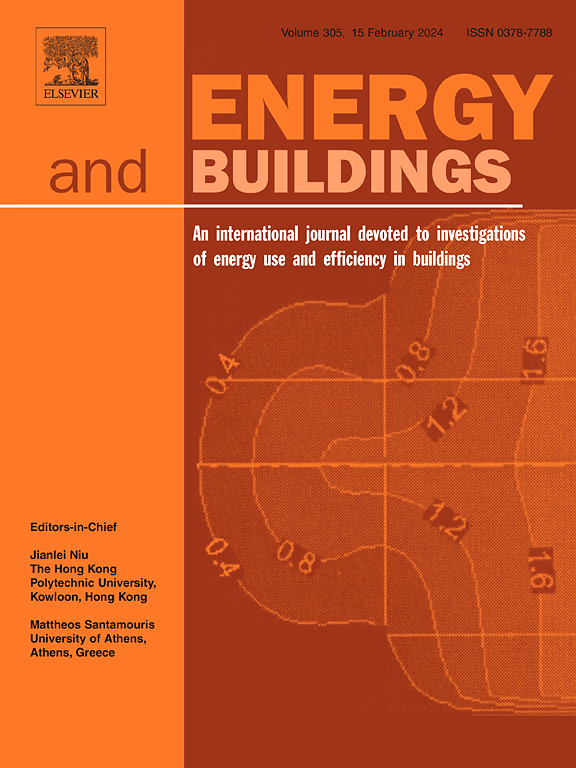Electric Vehicle integration in Zero-Carbon Buildings: Analyzing the impact on carbon emissions and economic performance
IF 6.6
2区 工程技术
Q1 CONSTRUCTION & BUILDING TECHNOLOGY
引用次数: 0
Abstract
The widespread adoption of electric vehicles (EVs) offers a promising solution to mitigate the supply–demand energy mismatch in buildings. However, existing studies have focused on the economic benefits of integrating EVs into buildings, with limited guidance on their application in promoting zero-carbon building development. To fill this gap, this study proposes a dual-layer optimization approach combining day-ahead EV scheduling and V2B bidirectional charger configuration, targeting both economic and carbon emissions objectives. This approach was applied to a typical zero-carbon building in Beijing, China, and a multi-time-scale analysis was conducted to explore the changes in economic cost and carbon emissions with varying configuration of EV chargers. Results show that optimizing for economic benefits can reduce costs by up to 25.38%, but at the cost of a 17.03% increase in carbon emissions. Conversely, prioritizing carbon emissions leads to a reduction of up to 12.47%, but with more modest economic savings of 12.08%. These findings highlight the importance of balancing carbon emissions reduction with cost efficiency when defining optimization objectives. Strict carbon reduction targets require constraints on EV charging behaviors, potentially compromising economic benefits. Furthermore, the study reveals that, under current electricity prices and battery costs, effective peak-valley arbitrage using EVs remains challenging.
零碳建筑中的电动汽车集成:对碳排放和经济绩效的影响分析
电动汽车(ev)的广泛采用为缓解建筑中供需能源不匹配提供了一个有希望的解决方案。然而,现有的研究主要集中在将电动汽车融入建筑的经济效益上,对其在促进零碳建筑发展中的应用指导有限。为了填补这一空白,本研究提出了一种结合日前电动汽车调度和V2B双向充电器配置的双层优化方法,以经济和碳排放为目标。以北京某典型的零碳建筑为例,通过多时间尺度的分析,探讨了电动汽车充电器配置不同对经济成本和碳排放的影响。结果表明,经济效益优化可使成本降低25.38%,但代价是碳排放增加17.03%。相反,优先考虑碳排放可以减少高达12.47%的碳排放,但经济上的节省则更为温和,只有12.08%。这些发现强调了在确定优化目标时平衡碳减排与成本效率的重要性。严格的碳减排目标要求限制电动汽车的充电行为,这可能会损害经济效益。此外,研究表明,在当前的电价和电池成本下,使用电动汽车进行有效的峰谷套利仍然具有挑战性。
本文章由计算机程序翻译,如有差异,请以英文原文为准。
求助全文
约1分钟内获得全文
求助全文
来源期刊

Energy and Buildings
工程技术-工程:土木
CiteScore
12.70
自引率
11.90%
发文量
863
审稿时长
38 days
期刊介绍:
An international journal devoted to investigations of energy use and efficiency in buildings
Energy and Buildings is an international journal publishing articles with explicit links to energy use in buildings. The aim is to present new research results, and new proven practice aimed at reducing the energy needs of a building and improving indoor environment quality.
 求助内容:
求助内容: 应助结果提醒方式:
应助结果提醒方式:


